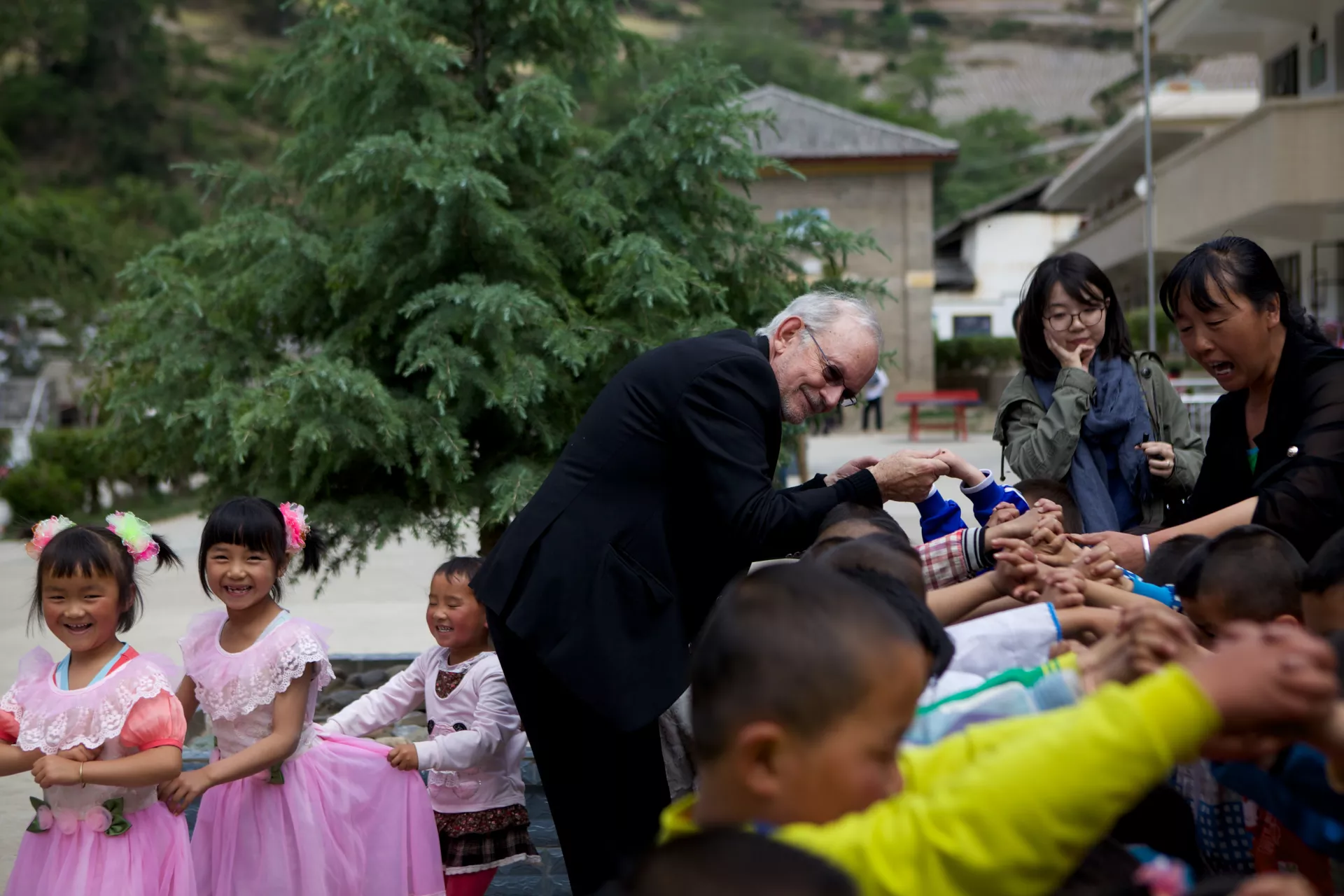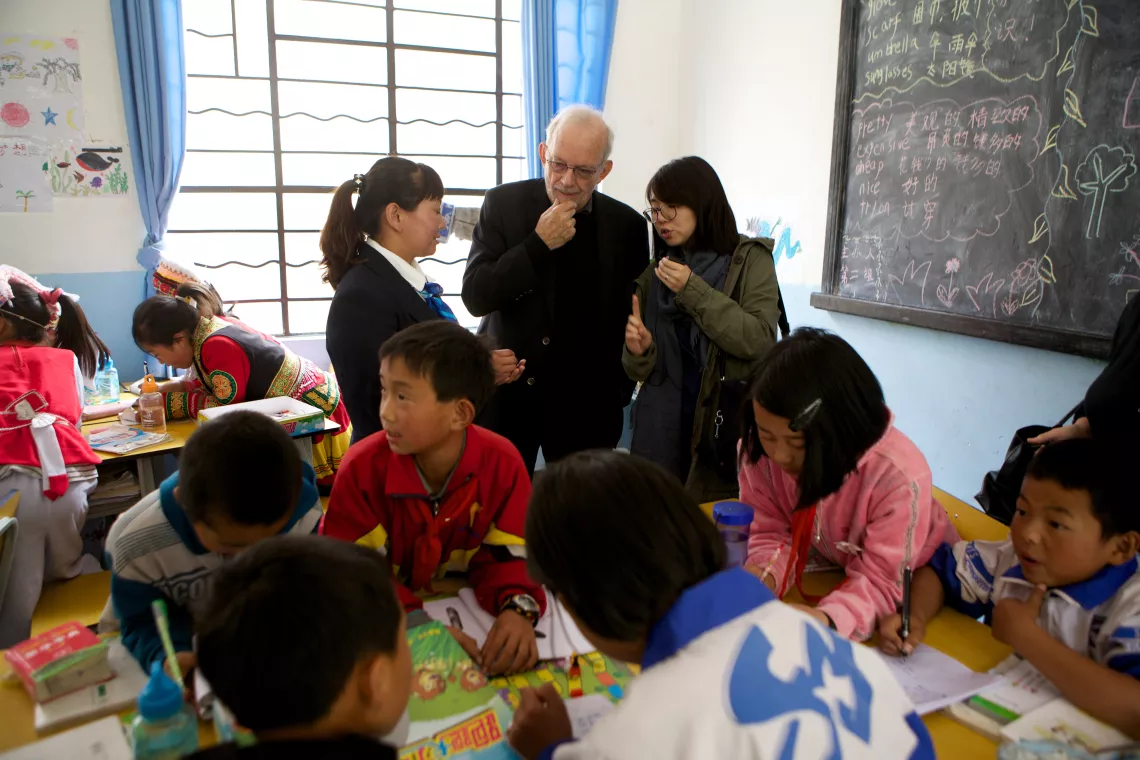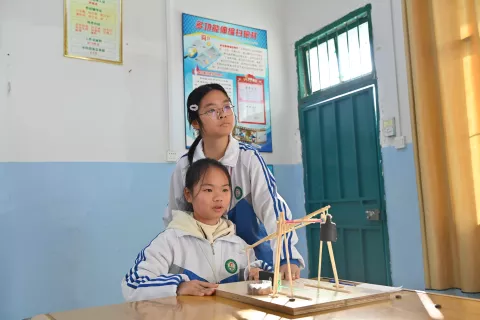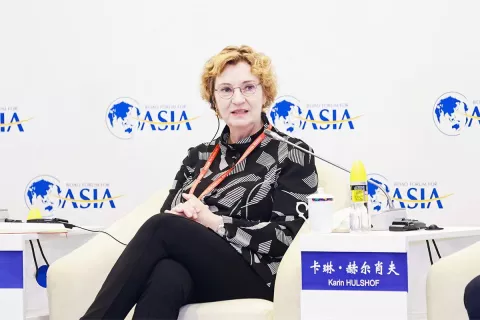Expanding quality education to remote communities in China
Expanding quality education to remote communities in China

Sitting in a grade 4 classroom, in a remote primary school in Jianchuan county in Yunnan Province, China, Mr Lake, UNICEF Executive Director, saw how a maths board game become the catalyst for interactive learning. Six children sitting together around a table, working together to get the answer, as they throw the dice and move around the board.
Once the game ends, Li Yimei, the school teacher draws the student's attention back to the blackboard, where she has consolidated the answers to the questions and now challenges them to respond individually to what they have just learnt. Hands shoot up as everyone wants to have their turn.
The school is one of 250 child friendly pilot schools in 5 demonstration counties, in which the Ministry of Education is working with UNICEF to test a new model of teaching. It includes social emotional learning through participatory lessons, making the school environmental friendly with sanitation and water facilities, as well as strengthening school management.
Touring classrooms and meeting with teachers, Mr.Lake saw how the impact of the teacher training in participatory learning was having an impact on the way students were engaged and excited to learn.
Mixin primary school, removed from the economic prosperity of China's urban cities, and home to 172 students from ethnic minority groups, sits nestled in a small village in a mountainous and poor farming community. Due to the long distances the children have to walk, it is a boarding school that serves the 12 surrounding villages.
Jianchuan county, where the school is located, is one of 823 nationally defined poverty stricken areas, where an estimated 70 million children live, making up almost 25 percent of the country's child population.
As Guo Xiaoping, UNICEF China's education specialist points out, many children from ethnic minorities tend to be shy and have difficulties so the social emotional learning helps to build their confidence. “We have seen how it transforms how they express themselves, and also how they proactively see help, which is very important for vulnerable children”, she said.
Yang Jianjia, a 64 year old grandmother from the Bai ethnic group who looks after 10 young children who, come every week from mountainous villages to attend the small kindergarten set up by and paid for the community. She explained to Mr. Lake that she does it because she wants her grandchildren to speak Mandarin and get educated.

Her demand for early childhood care for her grandchildren is being heard. The Government announced in 2010 that it will invest 8 billion USD in scaling up early childhood development services, as part of a landmark decision to universalize these services for pre-primary aged children by 2020. The ambitious plan, approved by the State Council and now being expanded nationally, was influenced by UNICEF technical assistance to an innovative pilot project, designed to provide low-cost yet comprehensive kindergartens for the country's 45 million 3 to 6 year old children.
“The school has changed a lot, especially since we have become a child friendly school and with the introduction of social emotional learning. The changes have been very big in this school. For the students it has made a big difference, says Li Zhenlin, the headmaster from Mixin Primary school.
The difference is also being felt well beyond this community too. Already the Government has adopted National Child Friendly School Standards. And social emotional learning, as a key component of this model, and with its focus on play and interactive teaching, is now also expected to be scaled up to other schools in China by 2015.
Mr. Lake's five day mission to China was an opportunity to understand the enormous progress the country has made in lifting millions out of poverty but also to see what remains to be done to improve the quality of services for children in the remotest parts of the country, especially for rural and ethnic minority children.
Due to its location, this is both a primary and boarding school, where the children sleep over during the week. Covering the 12 surrounding villages, students have to walk two to three hours to reach their homes in the mountains.
Social emotion learning we hope every child can be confident and have good skills in communication and negotiation with others and also realize with relationship with group.
Back to our pilot schools, are from ethnic minorities they tend to be shy and they have difficulties, so with this emotional learning they know how to express themselves and to seek help which is very important for vulnerable children.
Even in these remote areas, education is important and valued so much so that Yang Jianjia, a 64 year old grandma, comes every week from a mountain village with the youngest children, to make sure they benefit from a community supported kindergarten.
And just from here in Yunnan Province which has been very welcoming, for this kind of approach whether it is early childhood development, child friendly schools or barefoot social workers, who do a great job in the community, and there are many others, all get taken to scale across China which has had a huge impact in a country of 1.3 billion people.




